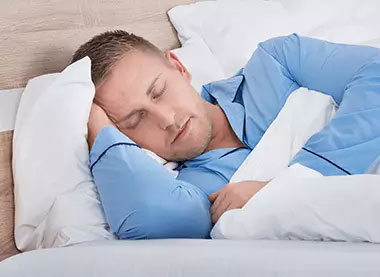Professional Vs. DIY Teeth Whitening:

Picture this, you look in the mirror and see your teeth don’t match the pristine white color of the napkin next to you. Are your teeth really yellow? Maybe you’re someone with a solid oral health regimen, so this is a pretty big surprise. So what can you do in this situation?
Teeth whitening has become an increasingly popular dental procedure. It’s become so popular, there are even kits you can take home with you to do yourself. It’s also available in dental offices across the globe.
As popular as it is, this begs a few questions… What exactly are the benefits and is it better to get it done professionally or do it yourself? In this article, we’ll explore both options and come up with a final verdict at the end.
Should You Whiten Your Teeth?
Teeth whitening comes with a variety of benefits for your overall health. Aside from giving you a brighter, whiter smile, whitening your teeth is extremely effective at fighting deep stains that come from a variety of environmental factors.
These factors include:
- Smoking
- Food and drinks (coffee, tea, wine, etc.)
- Medications
- Fluorosis
- Natural aging
- Certain illnesses
Intrinsic Vs. Extrinsic Staining
There are two different possible types of staining: intrinsic and extrinsic. But what exactly is the difference? Intrinsic staining comes from inside the tooth. This type of staining stems from medication, illness/infection, dental trauma, and general aging. When dealing with intrinsic staining, it’s usually most effective to go the professional route.
Extrinsic staining, on the other hand, is at surface level. This is the type of staining most DIY or over-the-counter tooth whiteners will improve. Smoking, coffee, and teas/sodas are the main cause of this type of staining.
Professional Teeth Whitening
The most common type of professional whitening service is in-office bleaching. During this appointment, a dentist will apply a peroxide-based bleaching agent to your teeth. Professional solutions can contain anywhere from 15% to 43% peroxide. The more concentrated the peroxide, the more rigorously it whitens your teeth.
By using a professional to whiten your teeth, you can expect them to get anywhere from 3-8 shades lighter and appointments will typically take 30 minutes to an hour to complete. Most people need to have 2-3 appointments in order to achieve their desired results. Professional whitening will typically cost between $500-$1,000 depending on the service and location.
Pros
- Professional whitening typically offers fast results.
- In-office bleaching uses a more concentrated solution, which means whiter teeth.
- You’re less likely to mess it up if you use a professional.
- Appointments don’t take much time at all.
- Results will last longer than at-home kits.
- You’re less likely to feel sensitivity and pain.
Cons
- In-office bleaching can be costly.
- It may be difficult to carve out time for multiple office visits.
- Your dentist may need to treat any underlying disease before even beginning the bleaching process.
DIY Teeth Whitening
At-home whitening kits and other remedies are popular among those on a budget. There are a variety of options if you choose to whiten your teeth at home. These include at-home bleaching trays, tooth whitening strips and gels, and whitening toothpastes and mouthwashes. As readily available as these options are, having so many to choose from can be overwhelming.
In terms of cost, this type of teeth whitening is much cheaper than a professional job. Despite this, there’s a larger margin of error and if you don’t know what you’re doing, you can really mess with your oral health. For this reason, it’s important to consult with your dentist on which at-home kits are best.
Pros
- At-home whitening is much cheaper.
- Treatment options are more readily available.
- They offer a quick self-esteem boost.
Cons
- Whitening your teeth yourself isn’t nearly as effective as professionally.
- Packaging can be misleading with their ingredients.
- You run the risk of overdoing it and hurting your teeth and gums.
- These kits only treat extrinsic stains.
The Verdict: Which is Best?
Either option, professional or DIY, can be beneficial if you’re looking to give your teeth a cleaner look. However, it’s most important to keep in mind that your overall oral health comes first. You shouldn’t jump right into the first at-home tooth whitener you see.
We recommend consulting with your dentist before trying any type of whitening procedure. At your appointment, you can discuss whether you’d be better off with a professional whitening or a kit at home. Your dentist will be examine your mouth to determine whether you have extrinsic staining, intrinsic staining, or both.
Depending on the outcome of that appointment, you’ll get to decide which is best. If your dentist confirms it’s only extrinsic staining and you don’t think you can afford a professional whitening service, you can ask for recommendations. Your dentist cares about your dental health, so they wouldn’t recommend something that they didn’t truly believe would work.
Teeth Whitening FAQ
1. What is Fluorosis?
Fluorosis happens due to fluoride interacting with mineralizing gum tissue. The fluoride alters the gum and can affect the color of tooth enamel. Fluorosis typically forms in children ages 8 and under but can be found in adults too. Teeth whitening is a common procedure used to combat the discoloration that stems from fluorosis.
2. How can I prevent staining in the future?
Because some staining comes with natural age progression, it’s impossible to dodge oral stains forever. However, by regularly brushing and flossing your teeth, you’re already off to a great start. You may also choose to add an antibacterial mouthwash to your daily oral health regimen. These steps prevent plaque build-up which is what stains like to grip onto.
3. Are teeth whitening strips safe to use?
There’s been some controversy in the past with teeth whitening strips. However, these strips are generally safe to use. However, look out for any strips that contain Chlorine Dioxide, as it will strip the enamel from your teeth and can cause pain and tooth decay.










